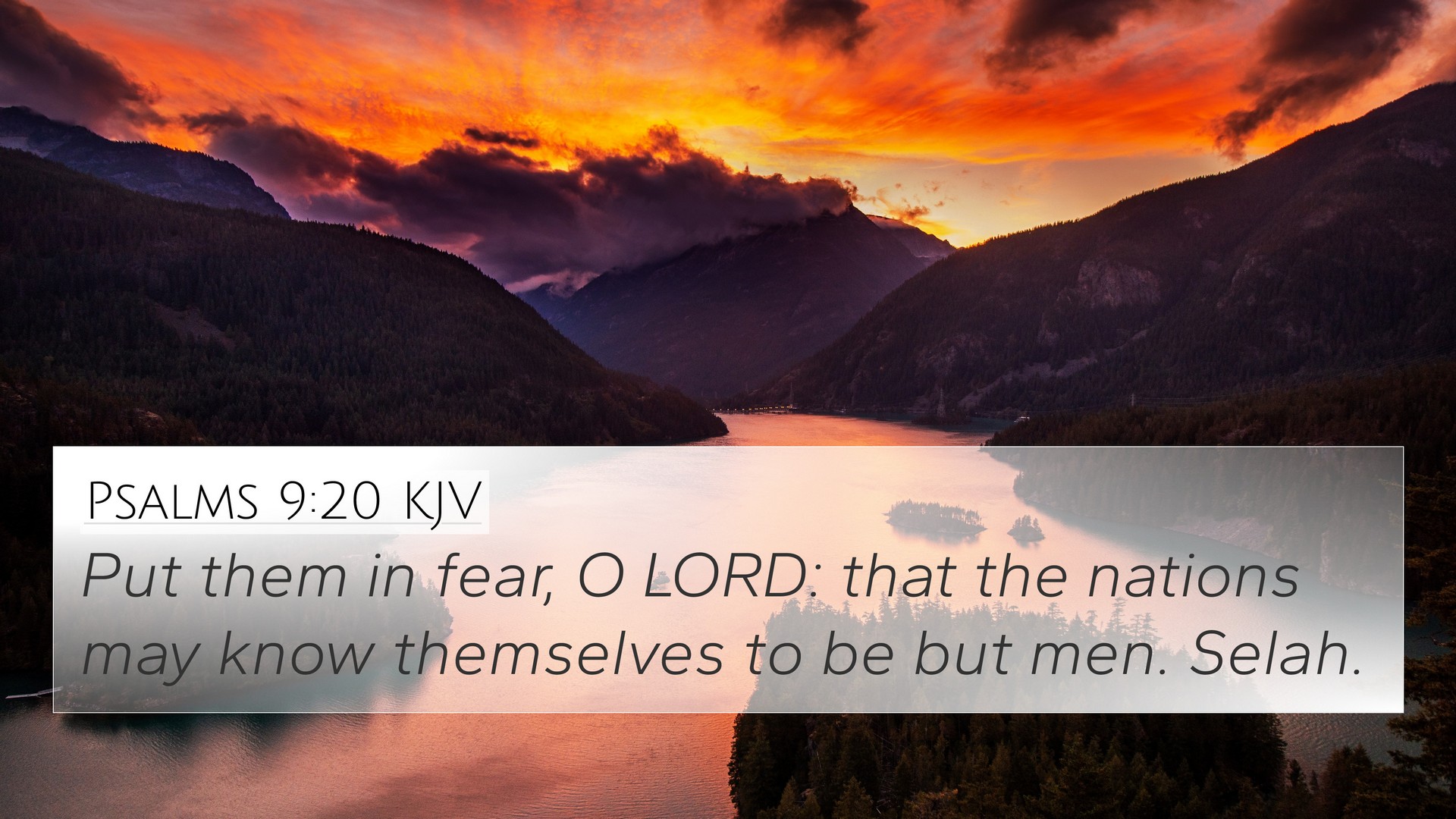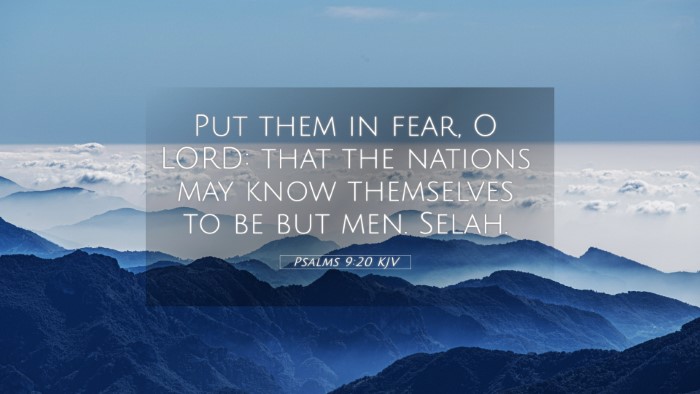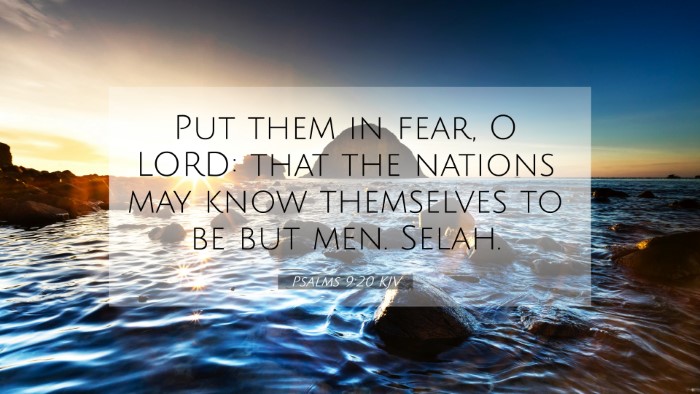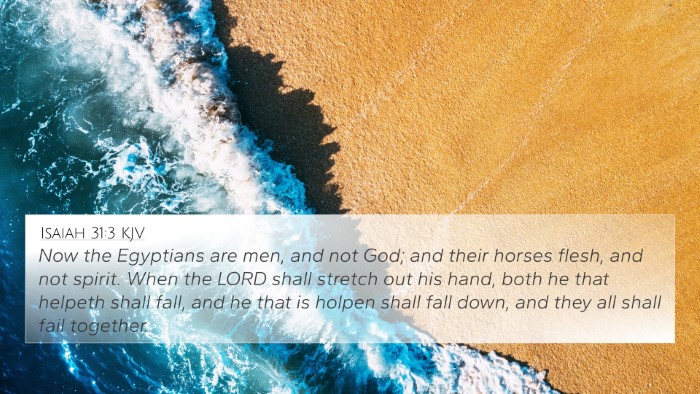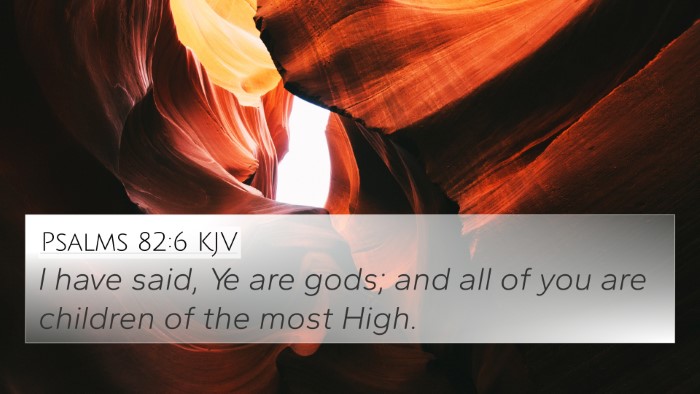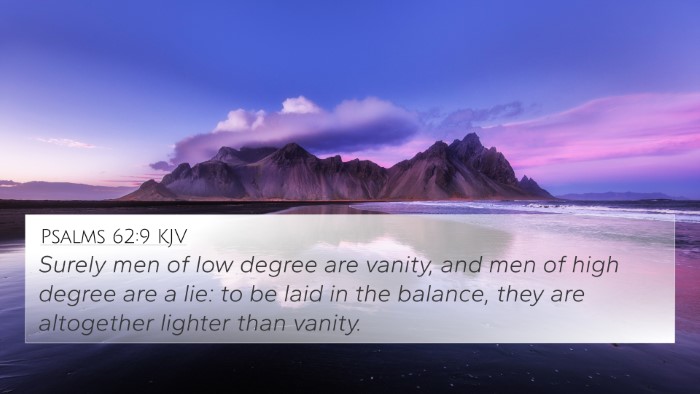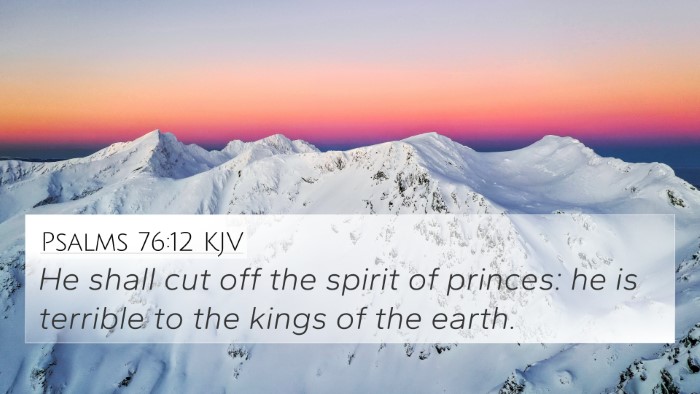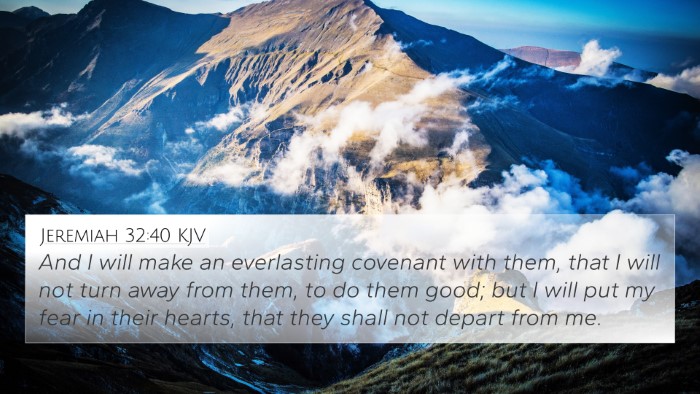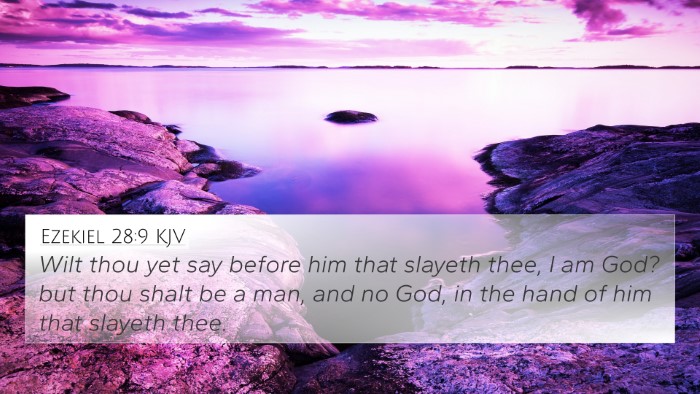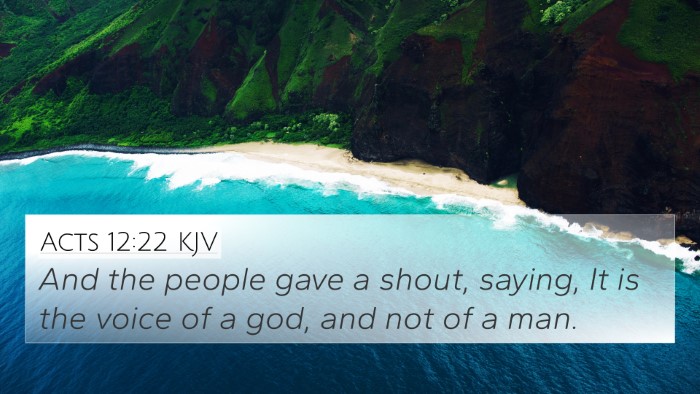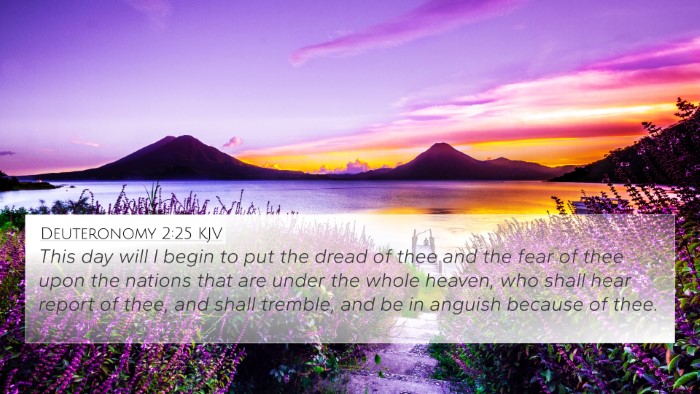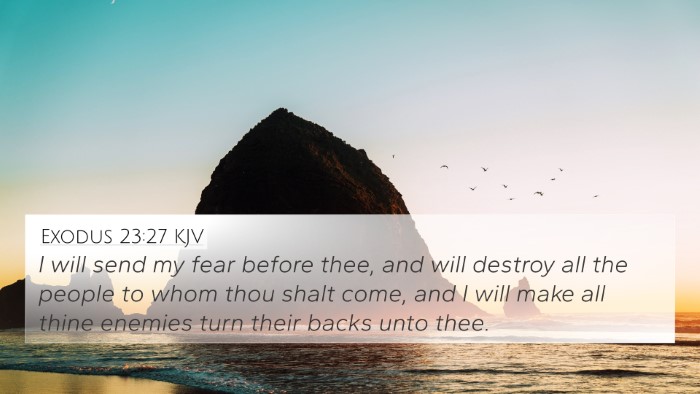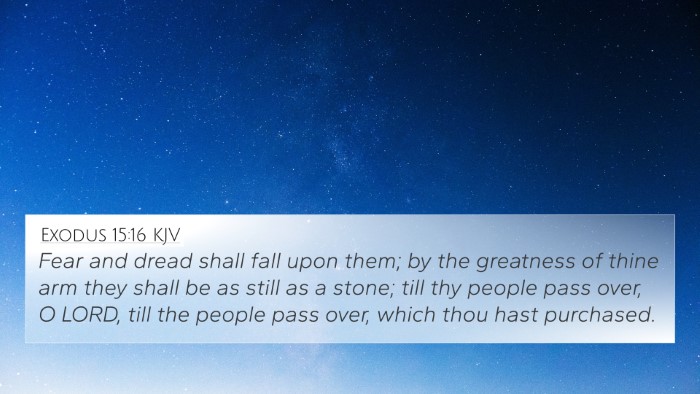Psalms 9:20 - Meaning and Interpretation
Psalms 9:20 states: "Put them in fear, O Lord: that the nations may know themselves to be but men."
This verse reflects a plea for divine intervention and a recognition of human frailty in contrast to God's sovereignty. Below, we explore its meaning by combining insights from renowned public domain commentaries such as those by Matthew Henry, Albert Barnes, and Adam Clarke.
Insights from Public Domain Commentaries
1. Matthew Henry's Commentary:
Matthew Henry emphasizes the contrast between God's power and human weakness. He points to the idea that divine fear is necessary for nations to acknowledge their limitations. Believers are reminded that in times of distress, understanding the reality of human mortality can encourage humility and dependence on God's overall authority.
2. Albert Barnes' Notes:
Barnes suggests that the request for the Lord to put nations in fear serves as both a judgment and a corrective measure. The fear of God serves to wake nations from their pride and self-sufficiency. It acts as a reminder that they are ultimately under God’s control, which is a recurring theme in the Psalms that underscores God’s sovereignty and justice.
3. Adam Clarke's Commentary:
Clarke argues that this verse reflects a collective call for God’s presence among the nations. The acknowledgment of being mere men brings a plea for some form of divine revelation or wakefulness to the shallow pursuits of life devoid of God. Clarke elaborates that this sentiment leads nations toward a recognition of their Creator and His purposes.
Related Bible Cross-References
- Romans 3:23: "For all have sinned and come short of the glory of God."
- Isaiah 40:6-8: "All flesh is grass, and all the goodliness thereof is as the flower of the field."
- James 4:14: "For what is your life? It is even a vapor that appeareth for a little time, and then vanisheth away."
- Psalm 90:3: "Thou turnest man to destruction; and sayest, Return, ye children of men."
- 1 Peter 1:24: "For all flesh is as grass, and all the glory of man as the flower of grass."
- Job 14:1: "Man that is born of a woman is of few days, and full of trouble."
- Psalm 103:15-16: "As for man, his days are as grass; as a flower of the field, so he flourisheth."
- Ecclesiastes 3:19: "For that which befalleth the sons of men befalleth beasts; even one thing befalleth them: as the one dieth, so dieth the other."
- Luke 12:20: "But God said unto him, Thou fool, this night thy soul shall be required of thee."
- Isaiah 2:22: "Cease ye from man, whose breath is in his nostrils: for wherein is he to be accounted of?"
Theme Connections and Thematic Bible Verse Connections
The themes present in Psalms 9:20 resonate with a broader understanding of human limitations and divine supremacy. Through this verse, we see connections that encourage believers to contemplate the vastness of God's sovereignty over humanity:
- Human Frailty: The verses highlight the transient nature of human life compared to the eternal nature of God.
- Divine Fear: The context of the verse encourages a healthy fear of God, prompting nations and individuals to act morally and justly.
- Repentance and Humility: Encourages nations to repent from arrogance and strive for a humble relationship with God.
- God’s Judgment: The plea for fear underscores a desire for divine intervention and accountability.
Cross-Referencing Biblical Texts
This verse serves as a foundation for deeper theological reflections and encourages the practice of cross-referencing Biblical texts. By identifying inter-Biblical dialogue through connections between the Old and New Testament, believers can enrich their understanding of God's character and His dealings with humanity.
Tools for Bible Cross-Referencing
Utilizing tools such as a Bible concordance or a cross-reference Bible study guide can assist in identifying these connections. Techniques for effective cross-referencing include:
- Understanding the context of each scripture.
- Identifying key themes that bridge different passages.
- Utilizing online platforms and study resources tailored for cross-referencing.
- Engaging in comparative studies that draw parallels between related scriptures.
Conclusion
Psalms 9:20 encapsulates a profound truth of God's authority and human limitations, urging nations to recognize their position before a mighty God. The integration of insights from multiple commentaries and established inter-Biblical connections enhances our understanding of this poignant verse.
